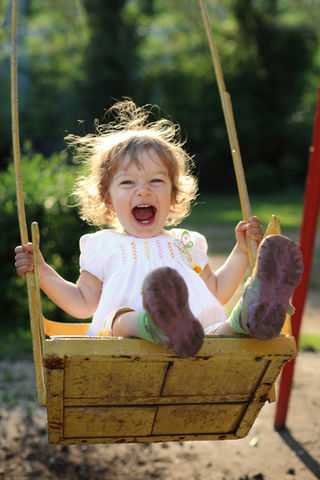Gratitude
5 Powerful Winter Solstice Practices for Parents
Resolutions work better when you clear the old to make room for the new.
Posted December 16, 2017
New year’s resolutions are great. There’s a natural momentum to a new year that spurs people to hop on their treadmills, clean their closets, or finally stop chain-surfing the web until way past their bedtimes.
However, the time before the new year — especially the Winter Solstice — also offers a unique window for change and renewal. The Solstice, December 21, when we shift from the darkest part of the year back into the ever-increasing light, is a perfect time to clear the old to make room for the new.
While the new year naturally helps you think about what you want to add to your life, resolutions work better if you first close experiences and clear space by letting go of the parts of your life that are dragging you down, are sapping your energy, or are no longer needed. It is not just an act of getting rid of things, it’s an intentional practice of brightening energy by making room for the new.
The Solstice is a great time for strategically removing from your life all the things that are not working or not flowing. Reflect on the parts of your life that are weighing you down—bad habits, stressful activities, addictions, negative thought patterns, old resentments, or things that put you in a sour mood every day. When you declutter your life, you create an invigorating, inviting space for passion, action, and creativity to take hold.
Here are a few practices that help parents clear the old to make room for the new:
1. Closure with gratitude
One of the best ways to achieve closure on the year is by expressing gratitude. Reflect on the few people you’ve been most grateful for during the year and creatively thank them. One man was grateful to his chiropractor for helping cure his chronic migraine headaches, so he sent her a thank-you card stating what her care meant to him. A mom was thankful for the friendly crossing guard who not only helped her kids cross the street every day, but who also greeted them with warm smiles or compliments - sweet and simple gestures that made them feel welcomed onto the school grounds. She thanked the crossing guard with a snuggly scarf for winter, hot chocolate, and a card that her kids helped make. One couple was grateful for their reliable, patient, and fun-loving babysitter who made it possible for them to enjoy date nights without guilt. They wrote her a letter detailing the positive things they appreciated about her.
Closing with gratitude lets you reflect on the year and sets you up for continued positive experiences in the year to come. As a bonus, research suggests that when you thank others, it creates an enormous increase your own happiness as well.
Action step: Think of one person to whom you’re especially grateful toward this year – such as a friend for listening, a grandparent who helped with child care, a teacher for helping your child, a mentor who gave you new ideas, or a boss who treats you great – and write them a detailed thank you card (or bake them cookies).
2. Decluttering your to-do list
Decluttering your to-do list - especially the tricky stuff - frees up energy for creativity and playfulness. There are to-dos that all of us get stuck procrastinating on, whether due to an unconscious or conscious "block," an underlying fear, or a timing issue. Create a tiny bit of movement in your most-stuck tasks.
Action step:
- Think of at least one thing hanging over your head or causing you stress – that complex medical bill that’s hard to sort out, the enormous pile of socks without matches that stares you down every weekend, an old friend you’ve always been meaning to call – and take a small step toward taking care of it.
3. Decluttering your space
Clearing your environment encompasses throwing out expired food from cabinets, de-cluttering closets, giving away toys or clothes, or going through old papers. Research suggests that managing a huge volume of possessions is a “crushing problem” in many homes, which often increases mothers’ stress levels. One study by Princeton researchers found that physical clutter in your surroundings competes for your attention, resulting in decreased performance and increased stress. Decluttering “stuff” may help kids too. For example, a recent study showed that too many toys actually reduced the quality of toddlers’ play, whereas fewer toys helped toddlers play more creatively and in a more focused way.
Action steps:
- Get rid of 10 toys
- Get rid of 10 pieces of mail
- Get rid of Tupperware without matching lids
- Get rid of 10 things from your garage
- Empty 1 drawer
- Get rid of 10 food items from your kitchen and donate them to a food pantry
- Get rid of 10 pieces of clothing from your closet and donate them
- Clean the papers off your fridge
- Delete 10 old voicemails
4. Decluttering your schedule
There is increasing pressure to sign kids up for structured activities such as karate lessons, gymnastics, painting classes, chess clubs, and the like. A Pew Research Center survey showed that a full 31% of parents say they always feel rushed. Constantly running from here to there increases stress levels in both parents and kids. Kim John Payne, author of Simplicity Parenting, argues that children experience a “cumulative stress reaction” from too much enrichment, activity, and choice.

Decluttering your schedule helps rebuild time for free-play, time for connection, and cozy time (also known as hygge). Reclaiming children’s unstructured time is especially important, as research consistently finds that children absolutely love free time, especially outside. One survey of mothers in 16 countries found considerable agreement that free time – especially playing outside, at playgrounds, or at parks – was their children’s most enjoyable activity (Singer et al, 2009). Backing off a busy schedule also allows children to spend time nurturing natural friendships through imaginative, kid-directed play.
Action steps:
- Remove at least one structured activity from your schedule.
- Take your kids outside for free play over the holiday break, even if it’s cold.
- Remember something you or your kids used to like to do for fun (like snowshoeing, knitting, having dance parties, doing puzzles, or watching animated films) that got edged out of your schedule due to busyness, and make a plan to reintroduce it into your life.
5. Clearing a bad habit
Think of one aspect of your parenting you don't like, are exhausted by, or are tired of, and identify one way to clear it by "doing something different." One mom hated the way she nagged her daughter to get her socks and shoes on before they went somewhere. She "did something different" by putting a bin of her daughter's socks and shoes by the door and, if her daughter had them on by the time they left, she played her daughter's favorite song as soon as they got in the car. A dad got tired of yelling at his sons to go to bed, so he "did something different" by adding a few extra rituals into the bedtime routine -
- some time for playfulness (play-wrestling and spinning them before plopping them into their beds),
- some time to talk about their day (asking "What was your favorite thing about today?" and telling them his favorite thing), and
- giving them 10 minutes to read or look at books before turning off the lights - all of which helped the boys settle down.
Action step:
- Identify one thing you dislike that you do as a parent and get specific about how you'll "clear it" by handling things differently.
The more you clear and work toward closure, the more you make space for all the good waiting for you around the corner of the new year.
Copyright 2017, Erin Leyba, LCSW, PhD




